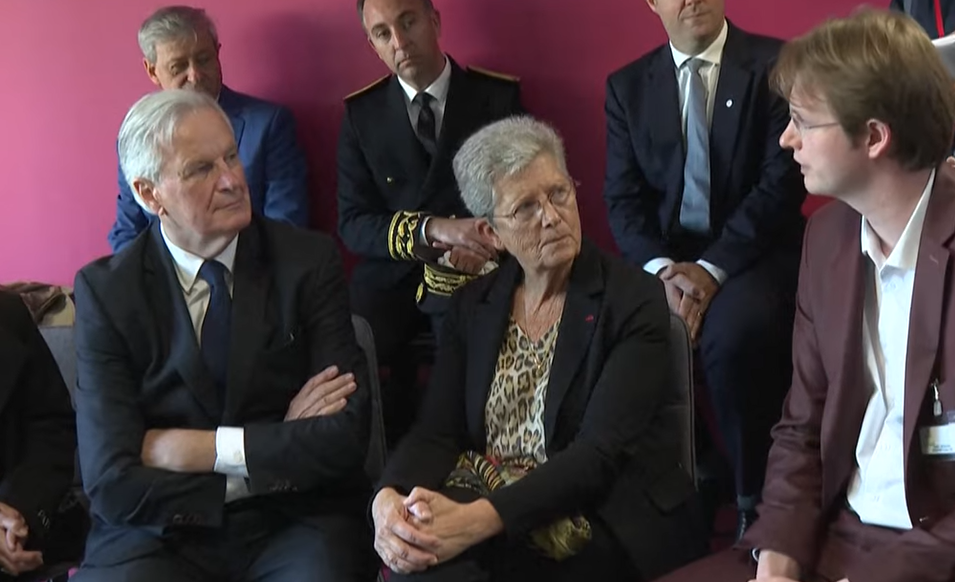France has made mental health a national priority, transforming institutions into incredibly productive centers of accessibility, compassion, and science. Once associated with traditional psychiatry, Sainte-Anne Hospital in Paris is now a highly adaptable facility where therapy and neuroscience collide, drawing researchers who want to drastically shorten the time between diagnosis and treatment. Its legacy and contemporary function make it especially representative of France’s changing strategy.
With nearly two million residents, EPSM Lille demonstrates the high effectiveness of community psychiatry. It has significantly increased recovery rates while enabling patients to remain integrated into their social surroundings by optimizing operations and incorporating outpatient services. This model places equal emphasis on prevention and treatment, which is remarkably similar to community-driven approaches in Scandinavian nations.
Ramsay Santé and other private actors contribute adaptability and creativity. With over 30 facilities, they have demonstrated remarkable effectiveness in responding to addiction crises and providing disability support, providing specialized pathways during a period when public systems are facing staffing shortages. Their strategy is very clear: in order to achieve both medical and social reintegration, combine clinical rigor with customized programs.
Table: Leading Mental Health Institutes and Organizations in France (2025)
| Institute / Organization | Focus Area | Location | Key Details | Reference |
|---|---|---|---|---|
| Sainte-Anne Hospital (GHU Paris) | Psychiatry, Research, Neuroscience | Paris | Historic psychiatric hospital, hub for cutting-edge research and treatments | www.ghu-paris.fr |
| EPSM Lille (GHT Psy NPdC) | Public mental health, addiction, community psychiatry | Lille | Large-scale facility serving 2 million residents with inpatient and outreach | www.chu-lille.fr |
| EPSM de la Sarthe | Prevention, diagnosis, treatment across age groups | Allonnes | Public institute, early detection of developmental disorders | www.epsm-sarthe.fr |
| Clinique Château Caradoc | Early pathologies, burnout, eating disorders | Bayonne, Basque Region | Innovative private clinic focusing on healthcare professionals’ well-being | www.dialog-health.com |
| Ramsay Santé Network | Private psychiatric clinics | Nationwide (30 sites) | Largest private operator with specialized addiction and disability care | www.ramsaysante.fr |
| Fondation de France | Research funding, policy influence, stigma reduction | National | 15+ years supporting psychiatric research, recovery programs, social projects | www.fondationdefrance.org |
| Centre Hospitalier Gérard Marchant | Psychiatry, child mental health, psychogeriatrics | Toulouse | Founded 1862, 1,400 staff, engaged in innovative psychiatric research | www.ch-marchant.fr |
| EPSM du Loiret Georges Daumézon | Comprehensive mental health care, autism, addiction, outpatient programs | Fleury-les-Aubrais | Large facility, strong ambulatory care presence | www.epsm-loiret.fr |
| Clinique Bethanie | Addiction, psychosocial support | South-West France | Known for personalized treatment programs and innovative therapies | www.groupe-sante-basque.fr |
| Doctolib (Santé Psy Étudiant) | Digital access to mental health professionals | National (digital) | Platform allowing students to book free sessions under government scheme | www.doctolib.fr |

France’s strategy also includes the Clinique Château Caradoc in Bayonne. It demonstrates how institutions can quickly adjust to new crises by concentrating on eating disorders in younger populations and burnout among healthcare workers. Its programs have been especially creative, combining lifestyle restructuring with therapy, which strikes a deep chord in a society that is struggling with digital pressures and professional stress.
We are reminded by organizations such as the Fondation de France that stigma reduction and research are inextricably linked. Their initiatives have greatly increased the capacity for early diagnosis and promoted the development of peer-support networks during the last fifteen years. Reintegration outcomes have significantly improved as a result of these efforts, demonstrating that healing encompasses more than just medical care and includes housing, work, and family life.
The Santé Psy Étudiant program has been a lifeline for students. It offers free psychological counseling with a noticeably better booking system and is accessible through Doctolib. It is incredibly effective at providing care and surprisingly inexpensive for institutions to maintain. It makes it abundantly evident that student mental health is no longer a neglected priority by cutting down on bureaucratic red tape and guaranteeing that young people receive assistance when they need it.
The Centre Hospitalier Gérard Marchant in Toulouse is one example of a heritage institution that demonstrates how tradition and contemporary research can coexist. Since its founding in 1862, it has balanced historical continuity with programs that look to the future, concentrating on child psychiatry and psychogeriatrics. Both patients and professionals find the atmosphere of trust and resilience created by the blend of tradition and modernity to be incredibly reassuring.
For its all-inclusive services that address addiction and autism, EPSM du Loiret Georges Daumézon has gained recognition. Its emphasis on specialized teams and outpatient care has been significantly enhanced to meet increasing demands without overburdening inpatient units. This is part of a larger national initiative to improve community-based support and drastically lessen dependency on institutionalization.
International policy is also influenced by French institutions. They have been incredibly successful in addressing broader societal stressors, such as corporate burnout and adolescent social media pressure, by incorporating mental health into education and workplace programs. They demonstrate how national institutions can impact international practice by working with WHO initiatives.
There are significant societal ramifications. The conversations that these institutes promote through workshops and public campaigns are remarkably similar to those in which celebrities like Stromae openly discuss their battles with depression and burnout. This kind of transparency lessens stigma and makes it easier for common people to see their experiences represented in broader cultural discussions.

